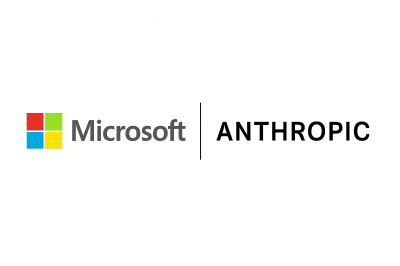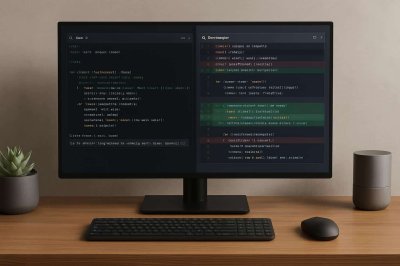Refact
Faster, efficient coding aided by assistant.
code programming assistantTool Information
| Primary Task | Coding assistance |
|---|---|
| Category | technology-and-development |
| Pricing | Free + from $10/mo |
| Country | United Kingdom |
Refact.ai is a powerful AI coding assistant tool that can significantly enhance the productivity and coding experience of developers by pairing them with an AI system. It is designed to provide a wide range of features, including code completion, refactoring, chat, and more. With Refact, programmers can complete their coding tasks faster and delegate repetitive or tedious tasks to the AI system. The tool has a comprehensive AI toolbox that can analyze existing code for bugs, productivity, and other issues, providing developers with a more efficient and reliable coding experience. This tool is compatible with modern languages and frameworks and can analyze code complexity, suggest potential code completions, identify code that requires refactoring, and generate patches to fix bugs. Refact.ai chat feature allows developers to interact with the AI system using natural language prompts without leaving the IDE, helping them get immediate help with coding. Furthermore, Refact ensures that privacy is prioritized by allowing users to restrict access to specific files or projects and not storing any code on the server side. Overall, Refact.ai is a user-friendly AI-powered tool that aims to make programming more enjoyable and productive for developers while providing them with a wide range of features that can enhance their coding experience.
Refact.ai is a technology startup focused on creating AI-powered coding assistants to improve software development processes. The company provides a secure and efficient solution for enterprises to utilize AI in coding while protecting their intellectual property. Refact.ai's offerings are designed to operate within the customer's trusted environment, ensuring data privacy and security.
The main product is an AI coding agent that integrates with developers' integrated development environments (IDEs). It features code generation and suggestions, context-aware answers to natural language questions about code, and offline capability, allowing it to function without an internet connection. The platform can be customized for specific codebases and integrates with tools like GitHub, Docker, and PostgreSQL. Refact.ai leverages Amazon Web Services (AWS) to enhance performance and accessibility for businesses of various sizes. The company has raised $2 million in funding to further develop its AI assistant capabilities.
| Pros |
|---|
|
| Cons |
|---|
|
Frequently Asked Questions
1. What is Refact.ai?
Refact.ai is a powerful AI coding assistant that aids developers in many ways - from increasing efficiency to speeding up the coding process. It is designed with a comprehensive suite of features like code completion, refactoring, AI chat feature, and more. Refact.ai is made to work with modern languages and frameworks, analyzing code complexity, suggesting code completions, troubleshooting refactoring, and generating patches for bug fixes.
2. What features does Refact.ai offer to developers?
Refact.ai offers a range of features including code completion, which suggests code completions based on the context of your code and can propose entire functions, classes, and commonly used programming patterns. It has the refactoring ability, helping identify areas in your code that could be more efficient or clearer. Refact.ai can debug your code and generate patches to address these bugs. With its AI chat, you can communicate using plain language prompts to ask questions or get help with coding. Additionally, Refact.ai also offers the capability of translating your code into different language and analyzing the complexity of your code.
3. How does Refact.ai help improve coding productivity?
Refact.ai harnesses AI capabilities to aid programmers in completing coding tasks promptly, freeing them of doing monotonous and repeating projects. It has a complete toolbox that comprehensively analyses code for bugs, productivity issues, and more. It aids in improving existing codes by suggesting potential code completions, identifying areas that need to be refactored, and generating patches to fix bugs.
4. Can Refact.ai help detect bugs in my code?
Yes, Refact.ai can assist in detecting bugs in your code. It does so by effectively analyzing the existing code and pointing out potential errors. In addition to identifying these bugs, Refact.ai can also create patches to address these issues, enhancing the reliability and efficiency of your coding tasks.
5. Does Refact.ai provide code completion?
Yes, Refact.ai provides a code completion feature. This feature suggests potential code completions going by the context of your code. It can suggest entire functions, classes, commonly used programming patterns, and even API usage. This makes it easier for developers to write complex or repetitive code segments.
6. How can I interact with Refact using natural language commands?
You can use natural language prompts through Refact.ai's chat feature to interact with the system and get help with coding without switching your Integrated Development Environment (IDE). This feature simplifies asking questions or seeking assistance related to coding tasks, offering prompt aid in an easy-to-understand format.
7. Is Refact.ai compatible with modern programming languages and frameworks?
Yes, Refact.ai is perfectly compatible with modern programming languages and frameworks. Its design and functionality were built with the current demands of these fields in mind.
8. What languages and frameworks are supported by Refact.ai?
While the website does not mention specific languages or frameworks, it states that Refact.ai is built for all major modern languages and frameworks, giving it a broad and wide-reaching applicability.
9. How does Refact.ai ensure privacy of the code?
Refact.ai ensures the privacy of the code through user-controlled access restrictions to particular files or projects. This ensures that confidential files and private code are kept secure. Importantly, Refact.ai does not store your code on the server side, further emphasizing their commitment to privacy.
10. How does the refactoring feature of Refact.ai work?
Refact.ai's refactoring feature works by analyzing the existing code and identifying sections that could be more efficient or easier to understand. After identifying these sections, it then proposes ways in which the code could be refactored to improve its readability or efficiency.
11. Can Refact.ai analyze complexity of my code?
Yes, Refact.ai can analyze the complexity of your code. It uses its AI capabilities to dissect and inspect the intricacies of the code you've written, helping you identify areas of complexity or potential improvement.
12. How can I get started with using Refact.ai?
Getting started with Refact.ai is easy. You can start by navigating to their website and clicking on the 'Get Started' link. This will guide you through the necessary setup and installation steps.
13. Is Refact.ai a cloud-based tool or an on-premises application?
Refact.ai allows you full control over where your code runs. This suggests that it can function either as a cloud-based tool or an on-premise application, depending on which suits your project better.
14. Are there pricing options for Refact.ai?
Even though specific pricing options are not listed, the website makes mention of a 'Pricing' link, suggesting that there are flexible pricing options for Refact.ai.
15. Does Refact.ai offer any AI chat feature?
Yes, Refact.ai does provide an AI chat feature. This interactive tool allows you to ask questions or seek help with code without having to leave your Integrated Development Environment (IDE). You can initiate this chat using plain language prompts.
16. Does Refact.ai offer an IDE integration feature?
Yes, Refact.ai does offer an Integrated Development Environment (IDE) integration feature. Specifically, it offers downloadable versions for JetBrains and VSCode, which are popular IDEs.
17. Can Refact.ai transform my code into a different language?
Yes, Refact.ai has the ability to translate your code into a different language. It's an added flexibility for developers who wish to reformat or repurpose their existing code into other languages.
18. What machine learning models are behind Refact.ai?
Refact.ai is powered by multiple machine learning models. While exact details on the type of models and their functions aren't specified, it can be inferred that these models drive functions such as code completion, refactoring, and bug identification.
19. How can I limit access to certain files or projects in Refact.ai?
In Refact.ai, you have the freedom to limit access to certain files or projects. This feature helps you control which parts of your code can be accessible, giving you a level of security and privacy as you work on your project.
20. Does Refact.ai store my code on the server side?
No, Refact.ai does not store your code on the server side. It respects the privacy and confidentiality of your work by implementing stringent data handling practices.
Comments
Similar Tools
Related News

The race to build the next-generation AI-powered browser is intensifying, and Microsoft, a heavyweight in the tech industry, is...
@devadigax | Sep 23, 2025

The landscape of software development is undergoing a profound transformation, driven by the rapid advancements in Artificial i...
@devadigax | Sep 23, 2025

Microsoft is rolling out a new **auto model selection feature** in its Visual Studio Code (VS Code) editor, marking a strategic...
@devadigax | Sep 16, 2025

The AI-powered coding assistant market is heating up, and Warp is throwing its hat firmly into the ring with a significant upda...
@devadigax | Sep 03, 2025

The competitive landscape of generative AI is shifting, according to a16z's latest report on consumer adoption. The fifth iter...
@devadigax | Aug 27, 2025

Anthropic, the AI safety and research company, has significantly enhanced its Claude AI model, granting it the ability to proce...
@devadigax | Aug 12, 2025
 AI Tool Buzz
AI Tool Buzz